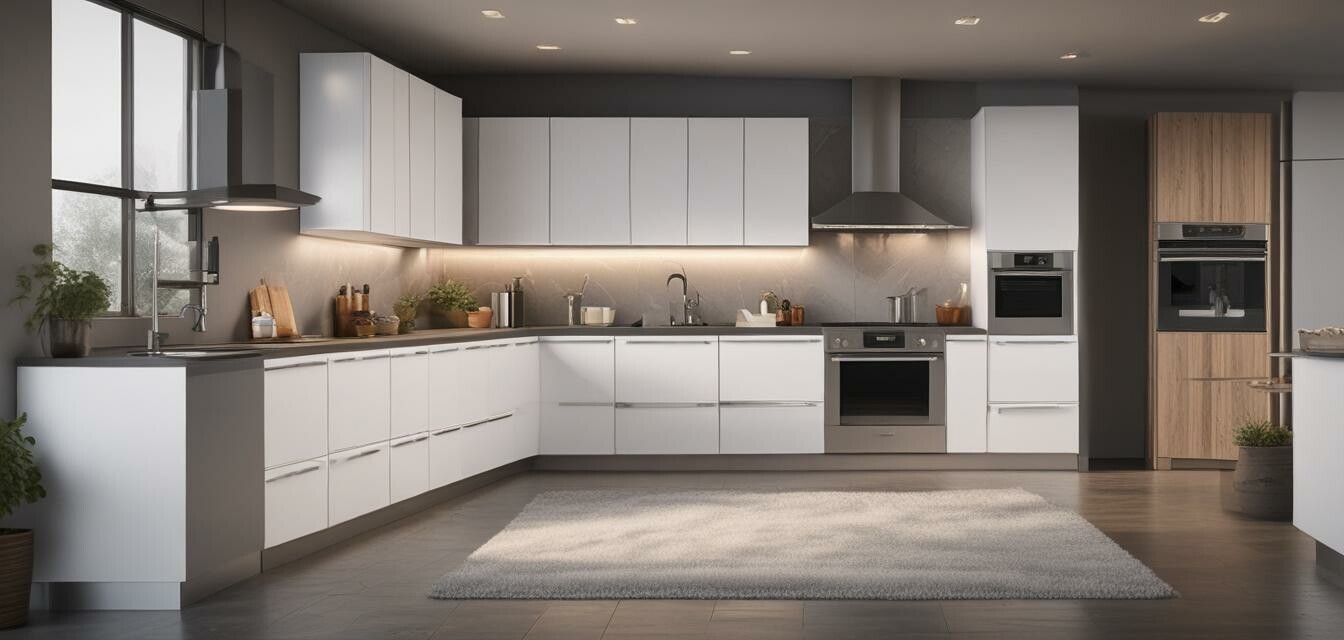
The Rise of Bluetooth-Enabled Kitchen Appliances
Key Takeaways
- Bluetooth-enabled appliances enhance convenience in the kitchen.
- Integration with smart home systems is becoming essential.
- Energy efficiency and sustainability are trending in appliance technology.
- New innovations continue to simplify cooking experiences.
- Smart kitchens are evolving with user-friendly features.
With the fast-paced lifestyle of today, the importance of convenience in the kitchen cannot be overstated. The rise of Bluetooth-enabled kitchen appliances is a testament to this change, seamlessly integrating technology into our cooking practices. This article explores the latest trends in Bluetooth kitchen gadgets and how they enhance the smart kitchen experience for tech-savvy cooks.
Understanding Bluetooth Technology in Kitchen Appliances
Bluetooth technology allows devices to communicate wirelessly over short distances, making it an ideal choice for kitchen appliances. From smart ovens controlling cooking times to refrigerators that help manage grocery lists, the convenience Bluetooth offers cannot be ignored.
Benefits of Bluetooth-Enabled Appliances
- Convenience: Control devices from your smartphone, saving time and effort.
- Integration: Easily converse with other smart home devices to streamline tasks.
- Accessibility: Monitor cooking progress from anywhere in the house.
- Innovation: Manufacturers are continually creating advanced features.
Popular Bluetooth-Enabled Kitchen Appliances
A variety of Bluetooth-enabled gadgets are available to enhance kitchen functionality. Below are some popular categories:
| Appliance Type | Key Features | User Benefits |
|---|---|---|
| Smart Ovens | Remote control, meal presets, recipe suggestions | Precision cooking and hands-free operation |
| Smart Refrigerators | Inventory management, grocery reminders | Reduced food waste and a smart shopping experience |
| Bluetooth Slow Cookers | Adjust cooking speed, sync with apps | Flexibility and ease while meal prepping |
| Touchless Faucets | Motion-sensitive, customizable flow rate | Convenience and hygiene during food prep |
Integrating Bluetooth Appliances into Your Kitchen
When incorporatingBluetooth-enabled appliances into your kitchen, consider the following:
- Compatibility with existing smart home systems.
- User-friendly interfaces for smooth operation.
- Energy efficiency ratings to lower utility bills.
The Future of Smart Kitchens
The future of cooking and kitchen management lies in the palm of your hand. Bluetooth technology continues to advance, and manufacturers are prioritizing user-friendly features that make cooking not just convenient but enjoyable. These appliances allow cooks to prepare meals while multitasking, providing a level of efficiency that was previously unimaginable.
Trends to Watch
- Smart Home Integration: Expect greater compatibility with smart home systems, allowing for voice control and seamless interaction.
- Energy Efficiency: Innovations will focus on sustainable technology to reduce energy consumption and waste.
- Advanced Features: Look for new apps and functionalities that enhance cooking experiences.
Conclusion
Bluetooth-enabled kitchen appliances are no longer just a luxury; they are becoming essentials for the modern kitchen. By staying informed on the latest trends and innovations, you can upgrade your cooking space and embrace the convenience offered by technology. For more information on the best Bluetooth-enabled devices, check out our guides on Bluetooth-Enabled Devices and Buying Guides.
Pros
- Enhances convenience and efficiency in cooking.
- Can help with meal planning and grocery management.
- Supports sustainable practices through energy efficiency.
- Growing variety of features to cater to diverse cooking needs.
Cons
- Higher initial investment required for smart appliances.
- Reliance on technology may lead to frustration if devices malfunction.
- Compatibility issues may arise with existing non-smart appliances.